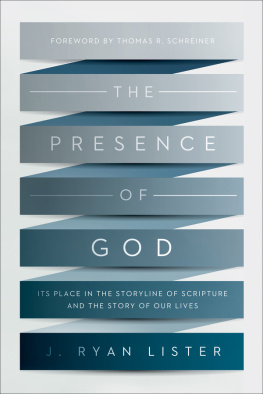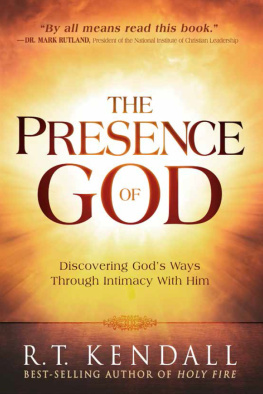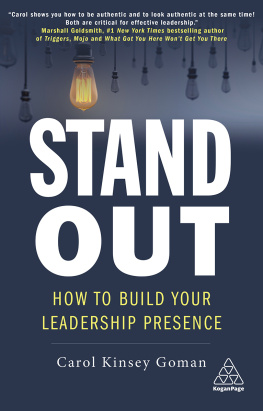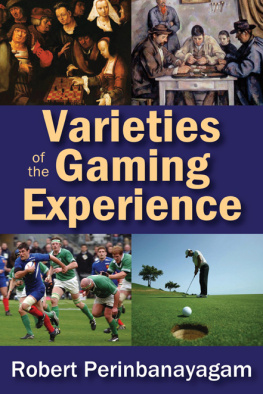Perinbanayagam R. S. - The Presence of Self
Here you can read online Perinbanayagam R. S. - The Presence of Self full text of the book (entire story) in english for free. Download pdf and epub, get meaning, cover and reviews about this ebook. year: 2000, publisher: Rowman & Littlefield Publishers, genre: Science. Description of the work, (preface) as well as reviews are available. Best literature library LitArk.com created for fans of good reading and offers a wide selection of genres:
Romance novel
Science fiction
Adventure
Detective
Science
History
Home and family
Prose
Art
Politics
Computer
Non-fiction
Religion
Business
Children
Humor
Choose a favorite category and find really read worthwhile books. Enjoy immersion in the world of imagination, feel the emotions of the characters or learn something new for yourself, make an fascinating discovery.

- Book:The Presence of Self
- Author:
- Publisher:Rowman & Littlefield Publishers
- Genre:
- Year:2000
- Rating:5 / 5
- Favourites:Add to favourites
- Your mark:
- 100
- 1
- 2
- 3
- 4
- 5
The Presence of Self: summary, description and annotation
We offer to read an annotation, description, summary or preface (depends on what the author of the book "The Presence of Self" wrote himself). If you haven't found the necessary information about the book — write in the comments, we will try to find it.
The Presence of Self — read online for free the complete book (whole text) full work
Below is the text of the book, divided by pages. System saving the place of the last page read, allows you to conveniently read the book "The Presence of Self" online for free, without having to search again every time where you left off. Put a bookmark, and you can go to the page where you finished reading at any time.
Font size:
Interval:
Bookmark:
R. S. Perinbanayagam

ROWMAN & LITTLEFIELD PUBLISHERS, INC.
Published in the United States of America
by Rowman & Littlefield Publishers, Inc.
4720 Boston Way, Lanham, Maryland 20706
http://www.rowmanlittlefield.com
12 Hids Copse Road
Cumnor Hill, Oxford OX2 9JJ, England
Copyright 2000 by Rowman & Littlefield Publishers, Inc.
All rights reserved. No part of this publication may be reproduced, stored in a retrieval system, or transmitted in any form or by any means, electronic, mechanical, photocopying, recording, or otherwise, without the prior permission of the publisher.
British Cataloguing in Publication Information Available
Library of Congress Cataloguing-in-Publication Data
Perinbanayagam, R. S., 1934
The presence of self / R. S. Perinbanayagam.
p. cm.
Includes bibliographical references and index.
ISBN: 978-0-8476-9385-6
1. Self (Philosophy) I. Title.
BD438.5.P47 2000
99-35069
126dc21
CIP
Printed in the United States of America
 The paper used in this publication meets the minimum requirements of American National Standard for Information SciencesPermanence of Paper for Printed Library Materials, ANSI/NISO Z39.481992.
The paper used in this publication meets the minimum requirements of American National Standard for Information SciencesPermanence of Paper for Printed Library Materials, ANSI/NISO Z39.481992.
I dedicate this work to the memory of Kenneth Burke,
whom I almost met once, in the hope that his magisterial
thought will be more widely appreciated.
It acts not from a centre to
Its object as remote,
But present is, when it doth view,
Being with the being it doth note.
Whatever it doth do,
It doth not by another engine work,
But by itself: which in the act doth lurk.
Its essence is transformd into a true
And perfect act.
Thomas Traherne
One of the most frequently debated issues in contemporary sociological theory is the nature and form of the agent, of the human being as an actor in his or her own right. Many recent works have sought to provide theories of the agent as a social and socialized actor. The sociology and social psychology that is derived from the work of American pragmatism did not, however, have to self-consciously and deliberatively concoct a theory of the agent. It was, from the beginning itself, a theory of the agent, conceiving him or her as both a voluntary actor and, the rumors to the contrary notwithstanding, as a structurally defined and interactionally sensitive one, a minded organism and a self. The theory is not only a symbolic interactionism but also a structuralist interactionism.
In these pages I develop this pragmatic theory of the agent further, contrast it with certain other theories of the agent and agency and then examine the implications of such a theory to selected areas of sociological interest. I begin with a discussion of the concept of the act, drawing mainly from the work of G. H. Mead and Susanne Langer, and proceed to use it to examine various perspectives on the human actor that are current in the social sciences. This examination yields a view of the individual as, inescapably and irrefutably, a discursive actor with a discursive mind, who engages in richly textured acts that dialogically involve the other and resist him or her at the same time. Actions, then, occurring as they do in terms of the other, and of the environment as an other too, are dialectical adjustments to both. The product of these discursive and adjustive processes is the self. Such a self is present in all acts undertaken by a human being; conversely all acts present a self. Acts and selves become, then, ongoing accomplishments that incorporate the acts and selves of others.
These encounters between a self and the other are in fact conducted, I argue further, drawing from the work of Mikhail Bakhtin and Kenneth Burke, by deploying language in varying rhetorical modes and reaping the fruits thereof. With these means a self is given a distinct identity. Identity then becomes a rhetorical achievement, one supported by a logic of signs. Further, insofar as identity is achieved through the use of language, a poetic of identity becomes impossible to avoid. To use signs to construct identity is in fact a poetic enterprise, and I delineate a few strategic examples of such a poetics of identity.
The last two chapters treat the activities of the self in various social encounters. In the first of these, a number of conversational interactions are analyzed to display the nature of the rhetorical processes involved in the constitution and presentation of self. Besides the work of Bakhtin and Burke I use various ideas from Paul Ricoeur and Paul Grice as resources for this discussion.
In the final chapter I argue that selves are not only experienced, felt, and presented but are also put into play by a cognitive and sentient and reflexive actor with varying intentions and are also watched as the play is conducted and consummated. It is possible, I think, for a symbolic and imaginative creature to feel the world and act in it directly or vicariously.
In any case, here it isa dialogue with various thinkers, often with their own wordsthe final essay in a quest to understand the relationship between language and existence. Issues raised in my earlier works are given further discussion and elaboration and amendment just as new issues are presented. Those who liked my earlier work may find this, too, of interest. As for the others... well, the caravan moves on.
In the production of this work, I have incurred several debts. Professor Doyle McCarthy read several chapters and gave me valuable advice. I am also extremely grateful to members of the East Side Book Club for allowing me to record their proceedings for use in this work. It needed a special kind of openness and generosity to allow a comparative stranger to listen to their dialogue on matters profound and frivolous. I am grateful to my friend Anne Snow for introducing me to the Book Club and helping me to transcribe the tapes. I was also able to obtain the taped records of conversations in an office. These two records of conversational interactions are cited in the text as Book Club Transcripts and Office Transcripts, respectively.
Nalayini Fernando typed the manuscript from my handwritten version and, as usual, did a splendid job. Veronica Manlow gave me exemplary editorial and typographical assistance. I am truly grateful for this. Various skillful editors have worked on this manuscript too and they deserve my thanks. Without their patient and understanding work, the publishing of a book would be more troublesome than it is.
Finally, I must thank the staff at the Hunter College library for the unfailing courtesy and despatch with which they obtained books and articles for me.
Lines from Many Happy returns from W. H. Auden: Collected Poems by W. H. Auden. Copyright 1945 and renewed 1973. Reprinted by permission of Random House, Inc.
Passages from The Philosophy of the Act by G. H. Mead. Chicago: University of Chicago Press, Ltd. Copyright 1938.
Lines from The Bald Soprano by Eugene Ionesco. Grove/Atlantic Inc. Copyright 1958.
Lines from The Geographical History of America or the Relation of Human Nature to the Human Mind by Gerturde Stein. Vintage Books: New York. Copyright 1976.
Lines from The Invisible Man by Ralph Ellison. Random House: New York. Copyright 1952.
Font size:
Interval:
Bookmark:
Similar books «The Presence of Self»
Look at similar books to The Presence of Self. We have selected literature similar in name and meaning in the hope of providing readers with more options to find new, interesting, not yet read works.
Discussion, reviews of the book The Presence of Self and just readers' own opinions. Leave your comments, write what you think about the work, its meaning or the main characters. Specify what exactly you liked and what you didn't like, and why you think so.









